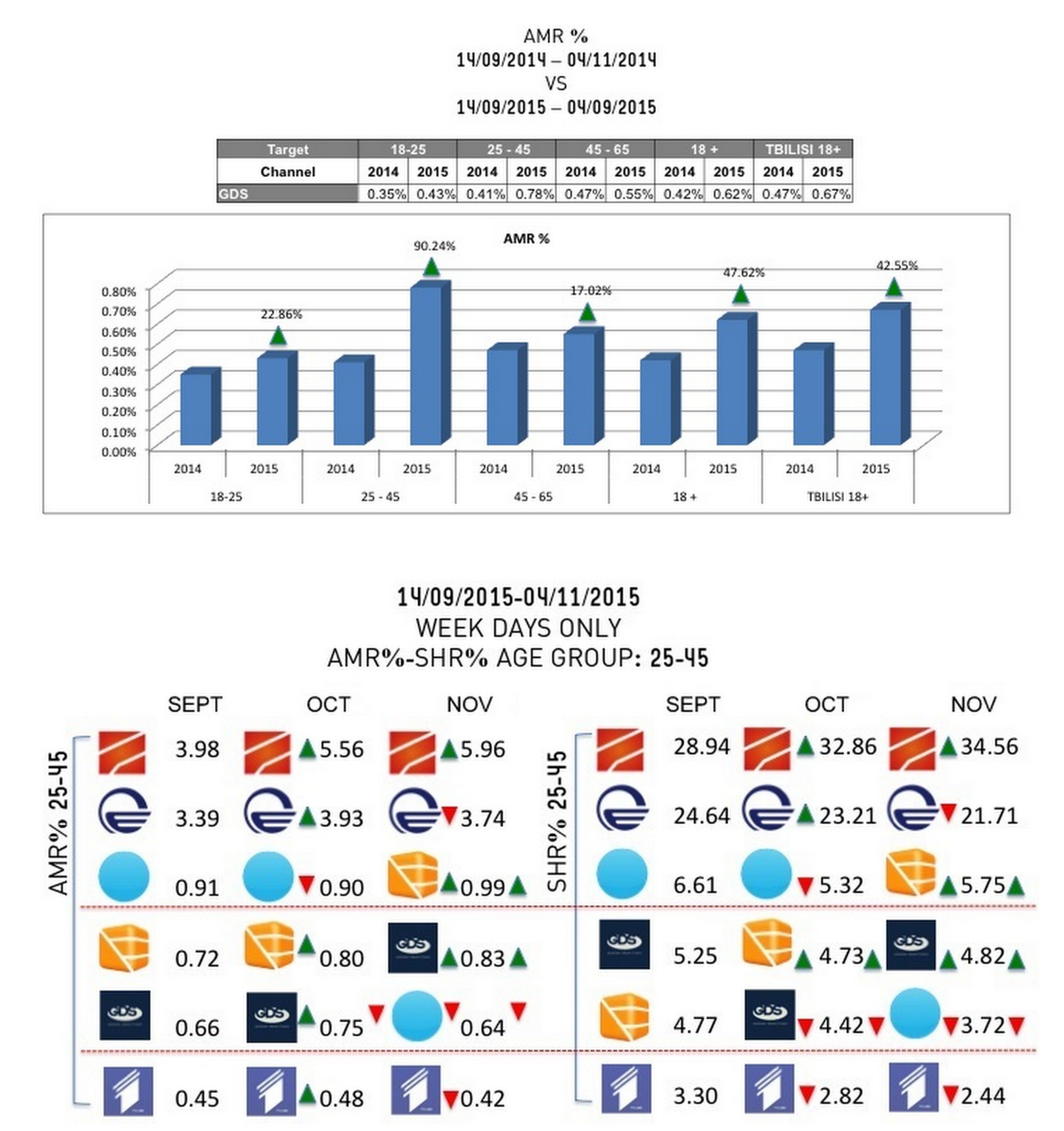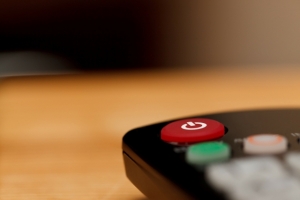Let the TV Ratings Race Begin!
The coming year is already shaping up to be quite a year for the Georgian telecommunications industry. As we reported in the previous business edition of GT, Kantar Media, a new international TAM provider, is set to enter the local market from January 1, 2016 and will monitor the performance of numerous small and regional TV channels whose ratings have never been measured before. But it’s not only the addition of many new television stations that promises a significant change, it’s the ongoing trends and transitions, which, if continued, will paint a completely different scene for the industry that allotted over $48 MLN in 2015.
According to the latest figures by TVMR GE, Rustavi 2 is holding on well in first position, followed by Imedi TV, with an estimated weekly audience share of ≈30% and ≈22% respectively. However, not all seems so stable below the top two… with Maestro and Comedy Channel going back and forth constantly. For example, during the week of 16/11/15 – 22/11/15, Maestro boasted an SHR of 7.13%, while Comedy Channel had only 5.07%. In contrast, the previous week (09/11/15 – 15/11/15) saw the latter being crowned as the winner with 5.77%, while 5.29% SHR holder Maestro lagged behind. Moreover, the most interesting shift in this fierce competition seems to be the ever-growing popularity of GDS, which has managed to dominate Channel 1 (GPB – Georgian Public Broadcaster) every single week since 19/10/15. If we take a look at the previous year, the AMR of the network has grown in every single category, with an astonishing 90% rise in the 25-45 segment. Furthermore, GDS overtook Maestro in the 25-45 section during the first week of November, having left a rather small gap to join the top 3.

To help our readers see a more accurately painted picture of the telecommunications industry in 2016, Georgia Today exclusively interviewed Ia Antadze, the Founder and Chairwoman of CDI (Civic Development Institute).
“I believe that in 2016 the specifics of the telecommunications market will be determined not only by the ratings of the leading companies, but by the variety of TV programs on different channels. Never over the past decade (and probably even earlier) has the television industry been more diverse and competitive. This enables viewers to seek content which is interesting for them, not only on the leading channels, but throughout the entire array. I think that in 2016 the ratings, which have so far been concentrated on two TV companies, will disperse and after a year the general picture will depict a more competitive environment.
The diversity of the telecommunications market is determined by two major factors: 1) the simplification of TV regulations and the transition to digital broadcasting and 2) the entrance in the three-year election cycle. In 2016, the Georgian Dream coalition will try to gain the majority in parliament for the second time, which is a huge challenge for both the government (in terms of its relations with the media) and the media itself. Will the television industry remain free during the elections period? – This is the main question today, which will be answered in the next few months.
It is hard to predict whether the debut of Kantar Media will dramatically change the overall picture, because if TV ratings are measured correctly, no matter how many TAM providers do it, the results should be quite similar. However, having a more competitive environment is always beneficial.
Last but not least, despite the fact that Comedy Channel scores high, it is a different type of TV channel and is less involved in the development process of society. Thus, in a free, competitive environment, the rating dynamics of Rustavi 2, Imedi, GDS and Channel 1 will be particularly interesting to observe. I believe that Channel 1, as well as GDS, are capable of being very serious competitors for any TV company.
In conclusion, the most important aspect is not the ratings of any particular channel, but a free and competitive media environment, the establishment of which is crucial for the progress of both the country and its people.”
So, what does 2016 really hold for the television industry? We’ll soon see.
Beqa Kirtava











